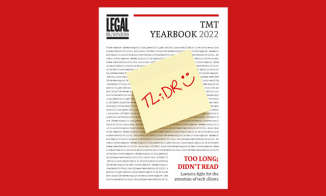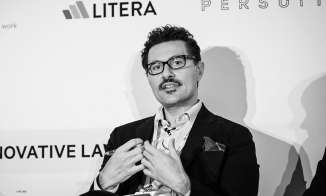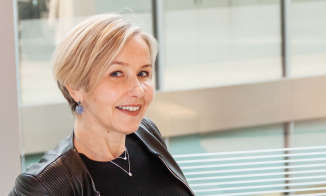Please see below for a link to the full TMT Yearbook.
Access your print copy online – TMT Yearbook 2022
TMT Yearbook 2022
Tech giants: TL,DR – Too long, didn’t read
‘TL,DR. That’s a real thing for them [the big tech companies]. That language pops up. If you’re plodding in as an old-school lawyer you’re going to last three seconds in that room. They’ll just think you’re a wanker.’
So says one prominent external adviser to the ‘Big Five’ tech companies – generally agreed to be Amazon, Apple, Google, Meta and Microsoft. And while that sentiment undoubtedly rings true among those in the sector, do not mistake it for levity. Continue reading “Tech giants: TL,DR – Too long, didn’t read”
Startups: Upstarts
‘At the early stage, companies get lots wrong. Their corporate governance is often non-existent. Their contractual framework and intellectual property ownership can be messy. They often do not properly implement the legal frameworks necessary to deal with data. But that’s fine because they’ve got one objective at early stage, which is to grow the financial strength and reputation of their business.’
Representing emerging companies can be an arduous undertaking. As the above assessment from Ashurst corporate partner and tech M&A aficionado Jonathan Cohen suggests, when companies and their founders are first starting out, an immaculate legal framework tends not to be top of the agenda, as budgetary and personnel constraints see other areas prioritised. Continue reading “Startups: Upstarts”
(Almost) Everything you always wanted to know about TMT*
Often the most daunting thing about venturing into the unknown is also what makes it the most exciting – you don’t really know how it is going to turn out. The prospect of launching LB’s inaugural TMT Yearbook in 2022 was perhaps no exception, but any niggling fears over the relevance of this new title to our readers were quickly assuaged when we analysed dozens of interviews with the sector’s great and good.
While it is true that every sector has its own particular challenges, opportunities and – frankly – client foibles to contend with, advising TMT clients seems to take that to a whole other level, whether the company is just emerging onto the tech or life sciences scene or is one of the highest-value corporations in the world. Continue reading “(Almost) Everything you always wanted to know about TMT*”
Perspectives: Mark Watts, Bristows
Throughout school, science seemed to be the direction I was heading in. I did the undergraduate piece and went on to the doctorate. I loved both actually, particularly the doctorate. We were doing some really cutting-edge physics, like trying to detect a new particle for the first time, that sort of thing.
There were elements of being a physicist and doing experiments that were really exciting. When you felt you’re on the verge of discovering something really new, it’s hard to describe the high that comes with that. It’s also hard to describe the low when the experiment fails and the result slips through your fingers. Continue reading “Perspectives: Mark Watts, Bristows”
Perspectives: David Cran, RPC
I kind of just fell into law. I’m not one of these people who always had a burning desire to be a lawyer – I’m suspicious of those people! I did double maths, physics and economics at A Level, which is enough to put anyone off. I wanted to do something completely different so I decided to read law at university. Then one thing led to another.
I left Northern Ireland and came over here. My dad had done a post grad at the University of Oxford and really enjoyed it. He was keen for me, my brother and sister to go away for the ‘full experience’. So I went to Oxford, did my degree, and it felt like such a natural progression to go to London. Continue reading “Perspectives: David Cran, RPC”
Perspectives: Nassib Abou-Khalil, formerly of Nokia
I grew up in Lebanon when there was a civil war. I say this with a bit of embarrassment but, because of the civil war, I never completed a school year. I had to be homeschooled for a lot of the time and the school year was always interrupted. I didn’t really have, like many young adults when they reached the age of 18 or 19, a clear vision of what I wanted to do.
Culturally, I was not the child who excelled in the subjects that families take pride in their children being good at. In Lebanon at the time, parents did not necessarily take pride, especially in young boys, in being good at French, Arabic, history, geography and arts. Those were where I was strongest. I was pretty good at maths, but the science curriculum wasn’t something I was very interested in. Continue reading “Perspectives: Nassib Abou-Khalil, formerly of Nokia”
Opinion: Technology, data and digitisation are redefining the role of GCs
Business never stands still. Cross-border organisations must evolve in response to an ever-shifting world of geopolitical risk and opportunity together with the rapid changes being brought about by technology, data and digitisation. To do this, they look to their senior leaders to ensure this complex landscape is navigated effectively and adroitly. A successful general counsel (GC) today must be a central part of that team, a business leader firmly seated at the strategic table who is able to drive the delivery of strategic outcomes and help unlock commercial innovation across the business – in addition to protecting a company from regulatory and legal risks.
Against this backdrop, it is no longer realistic to rely on traditional legal support models alone. The GC needs to call on a host of broader resources. They must embrace innovation to remain informed and agile, to drive sound decision-making, manage cost and enable growth across the business. Continue reading “Opinion: Technology, data and digitisation are redefining the role of GCs”















